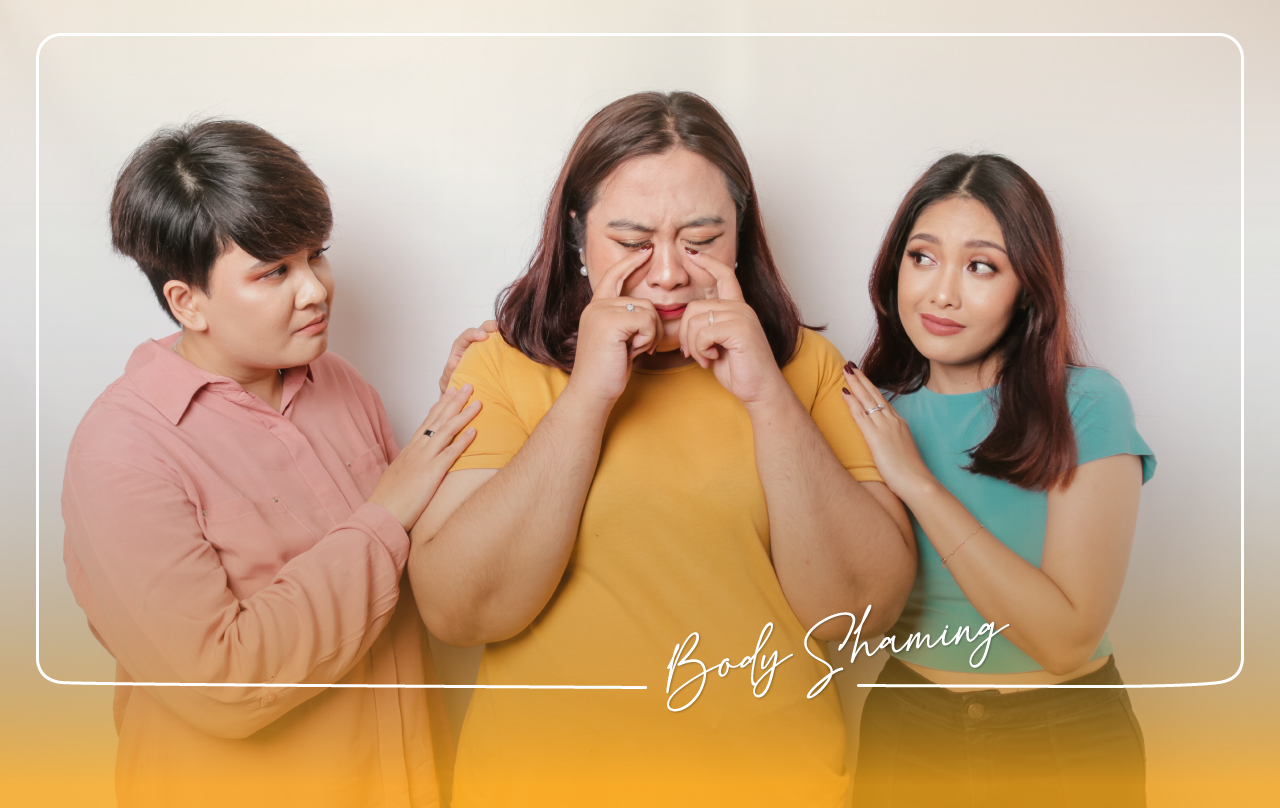
We live in a world where there is freedom to talk and share information anywhere and everywhere within seconds, thanks to technology. This reflects how developed we are, yet some people misuse it in ways that harm others. They impose their beauty standards and expect us to model perfection. They pressure us to fit into society’s definition of beautiful women, just as they were pressured. It’s time to break this cycle. Shall we put a full stop to it?
So, let’s look into the harmful culture of body shaming, the unrealistic beauty standards that fuel it, and the importance of body positivity and acceptance.
What is Body Shaming?
Body shaming is the act of criticizing or mocking someone based on their physical appearance. It manifests in many forms—commenting on someone being ‘too fat’ or ‘too skinny,’ judgmental stares, or even passive-aggressive remarks disguised as concern.
It is a toxic behavior that fosters insecurity and self-hatred and often leads to long-term emotional damage. It can happen in person, online, or indirectly, making the person feel less about themselves.
The Roots of Beauty Standards
Historical Standards: An Unacceptable Past
Beauty standards have always been shaped by culture, media, and society, but they are not fixed; they evolve over time. The origin of beauty standards is difficult to trace, as each region has its own ideals. Women were often pressured to conform to these standards to gain societal acceptance.
Today, beauty standards have become more complex and multifaceted, thanks to the rise of media and advertising. However, instead of celebrating diversity, much of today’s media presents a narrow, often unattainable version of beauty.
Media and Advertising: A Lavish Lie
The media plays a significant role in shaping societal beauty standards. From magazine covers to TV shows, advertisements, and social media influencers, we are bombarded with images of slim, flawless, and often airbrushed individuals.
While we may intellectually understand that these images are highly curated and don’t reflect reality, they still affect how we see ourselves. Many beauty standards set by the media are unrealistic, exclusive, and commercialized.
Social Media: A Double-Edged Sword
On platforms like Instagram, TikTok, and Facebook, users constantly compare themselves to influencers, celebrities, and even their peers. The endless scrolling through seemingly perfect images can lead to feelings of inadequacy.
However, social media can also serve as a platform for positive change. Body positivity advocates and influencers are using these platforms to challenge and change traditional beauty standards, promoting acceptance of all body types. The hashtag #bodypositivity has helped create a more inclusive narrative around beauty, though there is still much progress to be made.
Emotional Burden
Body shaming directly affects how people perceive their bodies. Constant criticism or comparisons can lead to a negative body image, which in turn affects self-esteem. This can make women feel anxious and depressed, potentially leading to eating disorders as they lose their appetite.
Due to the fear of judgment, people may avoid public gatherings and isolate themselves. Individuals may start believing they are inherently flawed or unworthy of love and respect.
Challenging Beauty Standards:
The Body Positivity Movement
The body positivity movement has been a powerful force in challenging traditional beauty standards and advocating for the acceptance of all bodies, regardless of shape, size, skin tone, or physical ability. The movement promotes the idea that all bodies are beautiful and worthy of love and respect.
One of the most important contributions of the body positivity movement is its emphasis on diversity. Rather than elevating one specific body type as the ideal, body positivity celebrates the beauty of all body types—whether thin, curvy, tall, short, or everything in between.
Shifting Toward a Health-Focused Mindset
While promoting body positivity and challenging beauty standards is crucial, it’s also essential to foster a mindset that prioritizes health and well-being over appearance. Shifting the focus from how a body looks to how it functions and feels can lead to healthier relationships with food, exercise, and self-care.
"Thin Equals Healthy" is a Myth
One of the most pervasive myths in our society is that thinness equals health. While maintaining a healthy weight is important, the focus should be on overall well-being rather than achieving a specific size. Health looks different for everyone and is influenced by a wide range of factors, including genetics, lifestyle, and mental health.
Focus on strength, functionality, and overall health rather than obsessing over appearance or weight, and practice mindful eating.
Love Yourself
Be kind to yourself. Adapt to and understand society’s toxic environment. Don’t lose hope in yourself. You can’t change who you are just because someone judges you. Accept yourself first.
Seek Support
If you’re struggling with body image issues, consider seeking support from a therapist, counselor, or support group. Sometimes talking about these feelings can help you gain perspective and develop healthier ways of thinking.
Body shaming and the pressure to conform to beauty standards are deeply ingrained in society, but they are not insurmountable. By challenging harmful beauty ideals, promoting body positivity, and fostering a health-focused mindset, we can create a more inclusive, compassionate world where everyone feels celebrated.
"The journey toward self-acceptance may not always be easy, but it is worth taking. Embracing diversity, rejecting restrictive beauty standards, and focusing on well-being can empower individuals to love themselves—and each other—in more profound and meaningful ways."


